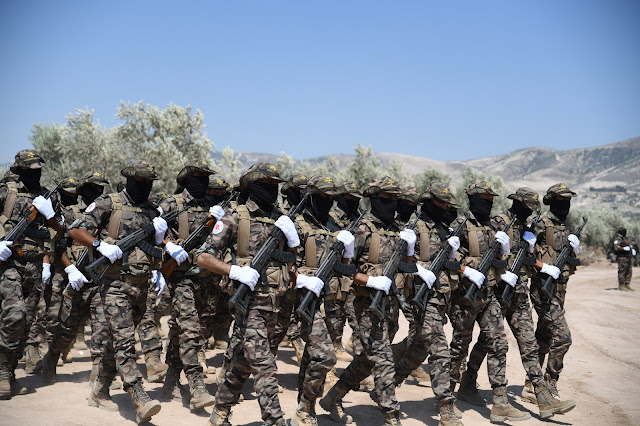Deraa’s surrender in Syria impacting in Russia and Iran
Bringing an end
to 75-day Assad-regime siege on the Deraa al-Balad, the new ceasefire agreement
may finish Syrian rebels. The siege and the subsequent agreement bring an end
to an anomalous situation that had pertained in Deraa al-Balad since the area’s
reconquest by the regime, Russian and Iranian forces in July 2018.
Long-simmering
tensions between the Syrian regime and opposition factions boiled over in Deraa
al-Balad. In July forces of Bashar al-Assad launched a major offensive that
included street-to-street fighting and artillery shelling inside the city.
Opposition forces quickly launched a counterattack, reportedly taking over nine
regime-held checkpoints and capturing dozens of Syrian army personnel.
Although, the UN
Office for the Coordination of Humanitarian Affairs has reported at least eight
civilian casualties and as many as 24,000 individuals displaced as a
consequence of the offensive. Local people mentioned that since the end of
April, the number of civilian causalities has reached 250. Moscow claims it is
trying to mediate a ceasefire, but this effort reportedly fell apart earlier
this week, and the shelling resumed. Assad is highly unlikely to be carrying
out such an intense campaign near the Israeli and Jordanian borders without
Moscow’s consent.
Security Service
Director-General Ken McCallum said foreign spies killed, stole technology,
sought to corrupt public figures, sow discord and attack infrastructure with
potentially devastating cyberattacks.
Since a 2018 nerve agent attack in England targeting former Russian double
agent Sergei Skripal, MI5 has disrupted hostile power activity that might have
resulted in an attempted killing.
However, it can
be seen that MI5’s biggest job is still tackling terrorism. Handling it
McCallum warned of the dangers emanating from Syria and Afghanistan but is also
of the opinion that they need to refocus attention on the threats from state
actors such as Russia, China, and Iran.

.png)
Comments
Post a Comment